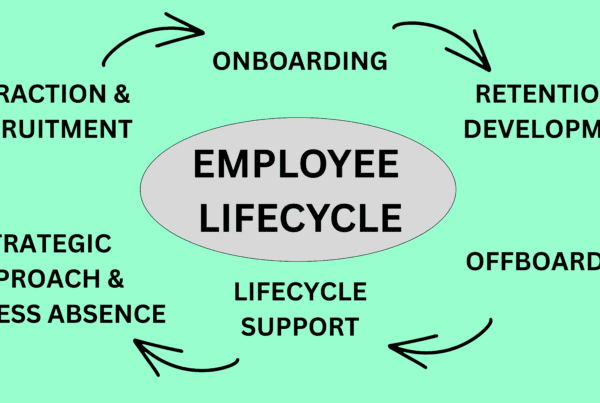How many calls and texts have you had about a potential claim for PPI or an ‘accident’ you have had in the last three years? We all know that we live in a claims culture – and so do employees.
Over the last few months, I’ve had an influx of calls from clients who are facing employment tribunal claims from former employees who fancy their chances of making some extra cash. All of these employers had followed their policies and had reasonable grounds for dismissal and most of the employees had less than two years’ service – so, on the face of it, no right to bring a claim.
However, everyone knows someone down the pub who has a mate who is a lawyer and everyone ‘knows their rights’. If they haven’t got the required service to claim unfair dismissal, many will try wrongful dismissal (breach of contract), whistleblowing or even some form of discrimination claim.
To make matters worse, since the Supreme Court decided – in their wisdom – in July 2017 that employment tribunal fees ‘prevented access to justice’ and were, therefore, unlawful, the employment tribunals have been under-resourced and overwhelmed by an ever-increasing number of claims – many of which are vexatious. What deterrent is there then for the ‘have a go’ employee and what a dilemma for the employer who receives notification of a claim against them – settle or fight?
Although it’s a galling thought when you’re pretty sure you’ve done nothing wrong, it generally makes sense to at least consider the possibility of settlement early on and before potentially embarking on what may be a costly defence. This is, of course, particularly important when the prospects of winning are low. In August 2014, the BBC spent £500,000 on the failed defence of an unfair dismissal claim brought by its former chief technology officer. It was later reported that he had offered to settle the case for £50,000.
However, there are other important factors in the decision-making process:
What are your chances of success?
By looking at the information available, an employment lawyer will be able to make an early assessment of the likelihood of successfully defending an employment tribunal claim. If those chances are 50% or less, it will probably be a good idea to look to settle at an early stage.
But we all know that the outcome of any employment tribunal claim is never certain and it’s never a bad idea to expect the unexpected.
What is it likely to cost you if the claim is successful?
How much compensation the Claimant may be awarded if they are successful will influence your decision as to whether or not you offer settlement at all but also how much may be appropriate. Remember that a Claimant has to demonstrate that they have tried to mitigate their losses and, if they have found work on an equivalent or higher salary, this can greatly reduce any compensation they will be awarded.
It’s also often forgotten that the employment tribunal can reduce compensation – e.g. in an unfair dismissal claim, where the employer has clear evidence that the employee was guilty of gross misconduct but they failed to follow a fair process prior to dismissal. This may be a procedurally unfair dismissal but the tribunal can then consider whether, if a fair procedure had been followed, the employee would have been dismissed in any event and, if so, they may reduce any compensation award by anything up to 100%.
What about the wider impact?
Settlement could have a significant indirect impact on your business – primarily in terms of your internal reputation. Although any payment made should be confidential, people talk and it may still get out that an employer has settled a case. If you then receive further claims and you decide to settle those as well, it sets a precedent that encourages other disgruntled former employees to follow suit – issue a claim and they will pay you off.
Most claims don’t make the news but, in the unlikely event that yours did, what sort of headlines would it attract and how might this affect your reputation? Even if it didn’t make the news, it could well be a source of local tittle tattle.
Perhaps most important of all, though, defending a claim can be extremely stressful and time consuming for the key people involved. Not only will you incur the legal costs of defending the claim, but you will also incur the costs of the time spent by those key people on preparing documentation and attending court to give evidence.
So, what advice do I give to my clients? Stop and think – it’s very easy to knee jerk and you will very likely be angry. You may take an early decision that you will defend a case no matter what and that you want to send a very clear message to your employees that it doesn’t pay to ‘have a go’ and take you to the tribunal.
Before you cut your nose off to spite your face, it’s really important to take advice, reflect and consider all these factors. Then – and only then – if you still think the right thing to do is to defend the claim, go ahead. You can always settle later down the line if you change your mind.
Author: Rosemary Darby-Jenkins, Director, Signpost HR Solutions, www.signposthrsolutions.co.uk | info@signposthrsolutions.co.uk
Rosemary has over 30 years’ experience in HR for the private and public sector and now runs her own Dorset-based consultancy. She and her team specialise in employee relations, change management, HR strategy, organisational development and reward and job evaluation.





